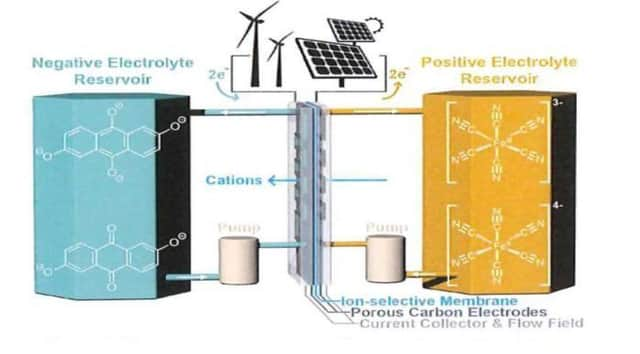Farming and organic energy storage


There is a need to integrate small scale renewables to the farm business. This will allow improved load management and crucially allow power delivery at specified peak times. Storage can be used as an enabling technology in the absence of financial support.
The key to success for storage lies in the following advantages; Rapid Response; absorb excess generated power; allow farms to match power and energy to requirement.
Advertisement
Advertisement
Much of the focus to date has been on non-organic flow batteries. Here, metal ions are an active component of electrolytes. The disadvantages are that these are expensive, corrosive, difficult to handle (with possible on-farm cross compliance implications) and kinetically sluggish.
Harvard University currently developing a Small Organic Flow Battery Storage Solution;
Organic flow batteries store energy in external reservoirs (see below), permitting larger amounts of stored energy at lower cost per kWh. Electrons are picked up and released by compounds, which are composed of inexpensive abundant elements i.e oxygen etc). These compounds are non-toxic/non-flammable. The organic input replaces metal ions with organic (carbon-based) molecules, known as Quinones. The advantage of Quinones are that they are abundant, naturally occurring, found in rhubarb which could be grown on the farm, and reactions are 1000 times faster that metal ions.
A battery has positive and negative electrolyte sides. The electrolyte structure with an organic flow has quinones in water on the negative side matched on the positive electrolyte with ferrocyanide (used in food additives). Quinone and Ferrocyanide are both highly soluble and stable in alkaline.
Should this become a reality, it could allow local supply and the possibility of zero-net energy, where the renewable energy produced on a farm meets the exact needs of business.